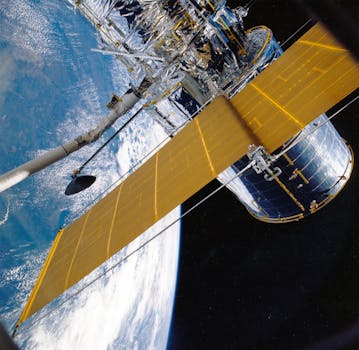
Satellite Launch Missions and Their Impact on Space Exploration
Satellite launch missions have been a crucial aspect of space exploration, enabling us to study the universe, communicate globally, and advance our understanding of the cosmos. With the help of satellite technology, we have been able to explore the far reaches of our solar system, discover new planets, and gain valuable insights into the nature of space and time. In this article, we will delve into the world of satellite launch missions and their impact on space exploration.
History of Satellite Launch Missions
The first satellite launch mission was achieved by the Soviet Union on October 4, 1957, with the launch of Sputnik 1. This historic event marked the beginning of the space age and paved the way for future satellite launch missions. Since then, numerous satellite launch missions have been conducted by space agencies and private companies around the world, including NASA, SpaceX, and the European Space Agency. These missions have enabled us to launch a wide range of satellites into orbit, from communication satellites and navigation satellites to weather satellites and scientific research satellites.
Types of Satellite Launch Missions
There are several types of satellite launch missions, each with its own unique objectives and requirements. Some of the most common types of satellite launch missions include communication satellite launches, navigation satellite launches, and scientific research satellite launches. Communication satellite launches involve launching satellites into orbit to provide global communication services, such as television broadcasting, internet connectivity, and mobile phone networks. Navigation satellite launches involve launching satellites into orbit to provide location information and timing signals, such as GPS and GLONASS. Scientific research satellite launches involve launching satellites into orbit to conduct scientific experiments and gather data on the universe, such as studying the Earth’s climate, the solar system, and the cosmos.
Impact of Satellite Launch Missions on Space Exploration
Satellite launch missions have had a profound impact on space exploration, enabling us to advance our understanding of the universe and improve our daily lives. Some of the key benefits of satellite launch missions include improved communication services, enhanced navigation capabilities, and increased scientific knowledge. Satellite launch missions have also enabled us to explore the far reaches of our solar system, discover new planets, and search for signs of life beyond Earth. Furthermore, satellite launch missions have paved the way for future human spaceflight missions, such as manned missions to the Moon and Mars.
Conclusion
In conclusion, satellite launch missions have been a crucial aspect of space exploration, enabling us to study the universe, communicate globally, and advance our understanding of the cosmos. With the help of satellite technology, we have been able to explore the far reaches of our solar system, discover new planets, and gain valuable insights into the nature of space and time. As we continue to push the boundaries of space exploration, satellite launch missions will remain a vital component of our efforts to explore the universe and improve our daily lives.




